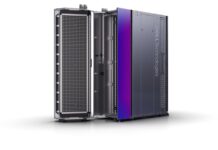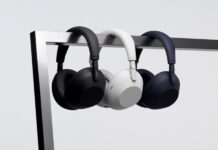A new year is upon us! It’s a time for relaxation, reflection, and making plans for the next twelve months. We might do some cleaning, clearing out the previous year’s clutter, and get our thoughts in order for when we return to our offices, dorms, and classrooms.
Take some of that time to attend to your computer. Laptops and PCs become slower as they accumulate clutter, such as files and browser tabs. Your workflow might also struggle with disorganised files, emails, and bookmarks. A little housekeeping can do wonders for your and your computer’s performance.
“Excessive digital clutter can hinder the performance of your laptop, leading to a noticeable decline in speed and responsiveness,” explains Lesego Bobbi Nyamane, Marketing Manager at Acer Africa. “This clutter not only affects your laptop’s performance but also spills over into your work efficiency. Challenges arise when attempting to locate files amidst the overwhelming presence of numerous items. Picture a scenario where your desktop is inundated with files and shortcuts, creating a visually taxing experience. Devote a brief period at the end of the year to organise these elements. By doing so, you pave the way for a new year with a refreshed and clutter-free computer.”
Want to get your laptop, PC, or phone back into shape? Here are ten helpful housekeeping tips:
Pick your goals: What do you want to achieve with your cleanup? Your main goal might be to remove all excess files from your desktop. You could aim to sort and back up your many photos. Or you might clear your email inbox. Decide what you want to achieve, or else you risk becoming overwhelmed. Choose more manageable tasks first; don’t start another housekeeping task until you finish the previous one.
Sort your files: Organise files into folders. If you don’t know where to start, put all the files into one folder to eliminate the clutter immediately. Then, start organising the files inside that folder with subfolders. Delete unnecessary files, such as old files or copies. Aim to remove all the files on your desktop because a cluttered desktop is a prime reason for sluggish machines.
Remove unwanted apps: Look through your PC’s list of installed software or browse the app list on your phone. Get rid of anything you installed but don’t need anymore, such as apps you tried out or games you no longer play.
Check the photos and documents folders: Your PC can store photos and other documents under special folders such as ‘Pictures’ and ‘Documents’. Check those folders to see if there is anything important. Sort those files and delete the unnecessary ones. On your phone, check photo folders used by apps. For example, the Whatsapp folder can accumulate a lot of images and videos you don’t need.
Clear your browser: Face it, you won’t get back to all those tabs you keep open in the background. Go through your tabs and close them, or bookmark the ones you want to keep. Also, go through your browser’s extensions and remove the ones you don’t use anymore.
Backup your data: The less space your device has, the slower it will perform. Keep files you need frequently on your machine and store the rest as backups. You can copy them to external hard drives, thumb drives, or online cloud storage. Ask your company if they have a space to back up your work files.
Organise online workspaces: You likely use several online tools such as Office365, Gmail, Canva, Evernote, etc. These tools also tend to collect clutter; for example, you may have messages you’ve read but not archived. Look into how you can organise these workspaces. Many of them let you create folders or labels to organise things. Look for proven strategies such as Inbox Zero and the OHIO method for the more intimidating tasks, such as organising your email.
Check your passwords: Chances are fair that some of your online passwords have been stolen and should be changed. It’s a good idea to check these: Google and Apple’s password managers have a feature that will check if any of your accounts appeared on lists of stolen information. You can also use the excellent haveibeenpwned.com to check. Change the passwords on any flagged accounts.
Think about upgrades: Housekeeping can only do so much. If your device is older, severely short on storage (even after deleting files), or continues to perform poorly, consider if you need to make upgrades such as more storage, memory, or perhaps a new device. Now, you can plan for those upgrades to happen during the year.
Consider a device refresh: If you want to return your device to its original self, you can consider a device refresh, also called a factory reset or powerwash. Doing so will revert your device to its original state, removing all excess files and applications. Remember to back up your files and passwords, and note which apps you want to reinstall.
These tips will help prepare you and your device for the new year. Ideally, you shouldn’t wait so long—if you apply a few of these tips regularly, your machine will stay fast and organised for much longer. But even once a year is better than nothing: whether you stagger the housekeeping over several days or do it all at once, you’ll have a faster and better laptop, PC and phone, a fresh experience just in time for a new year’s possibilities.
Article Provided




























